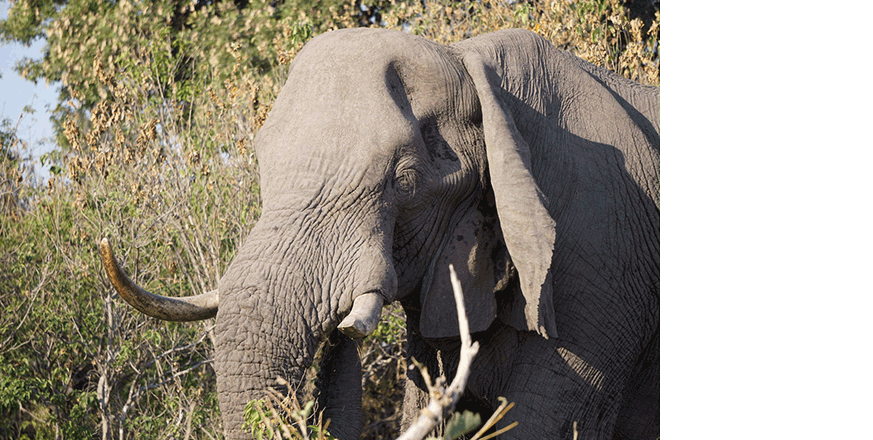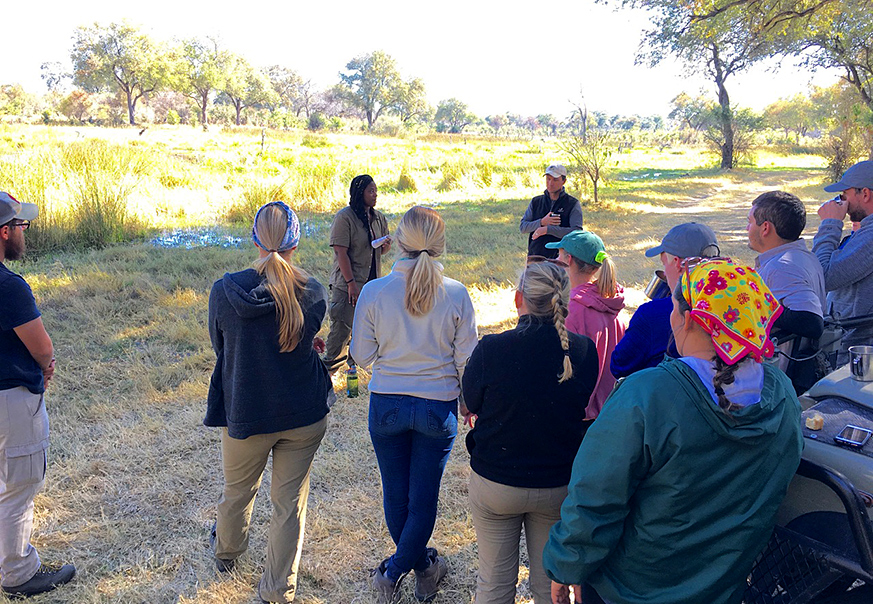Notes from the Field: Dorothy Tovar, Man vs Man (vs Wild) - The Intricacies of Human-Wildlife Conflict

One of the major themes of this course has been human-wildlife conflict in areas where there are no clear (if any) boundaries between wilderness and human existence. While a notable portion of conflict stems directly from human-wildlife proximity, such as crop raiding by pesky elephants, nature is often caught in the middle of the conflicting interests of humans. Of the many intricate and intersecting issues composing this theme, we focused on the country-wide safari hunting ban currently in place. Safari hunting is a long standing practice in Botswana where hunts are sold to customers from developed European and North America countries. The Okavango, Makgadikgadi, and Chobe regions have benefited from local community-based tourism initiatives where communities receive income, employment opportunities, and other resources provided by tourism organizations. In regions where conditions are unsuitable for photographic tourism, rural communities rely heavily on income generated by safari hunting. Alternatively, over-hunting, corruption, and poor ethics are important concerns inspiring the ban, and should be strongly considered.

At our fireside discussion, we were equally overwhelmed by the challenge of suggesting resolutions to this conflict. A sentiment shared throughout the group was how much our opinions on the issue changed after the opportunity to learn from our guides and hear first-hand accounts of the impacts of the ban. Many of us came in with conservation ideals that did not include informed consideration of how things play out on the ground. It became clear that the global community (fueled by the wealth of incorrect or missing information on the internet) often does not have enough accurate information to develop informed opinions. Diligent work is needed on our part to seek out and discern credible sources before rallying behind a cause.
Local communities have the distinct ability to greatly contribute to or thwart the effectiveness of conservation interventions, and are directly impacted by many of these decisions, making it imperative to incentivize their support of wildlife conservation. While the debate around safari hunting continues to remain polarized, the impact of this ban on local communities that once benefited from this practice is apparent. We agreed that positive outcomes for rural communities should be prioritized alongside the conservation of wildlife.
 Dorothy Tovar is a Stanford graduate student in the School of Medicine, who splits her time between the Kirkegaard Lab and the Hadly Lab.
Dorothy Tovar is a Stanford graduate student in the School of Medicine, who splits her time between the Kirkegaard Lab and the Hadly Lab.



